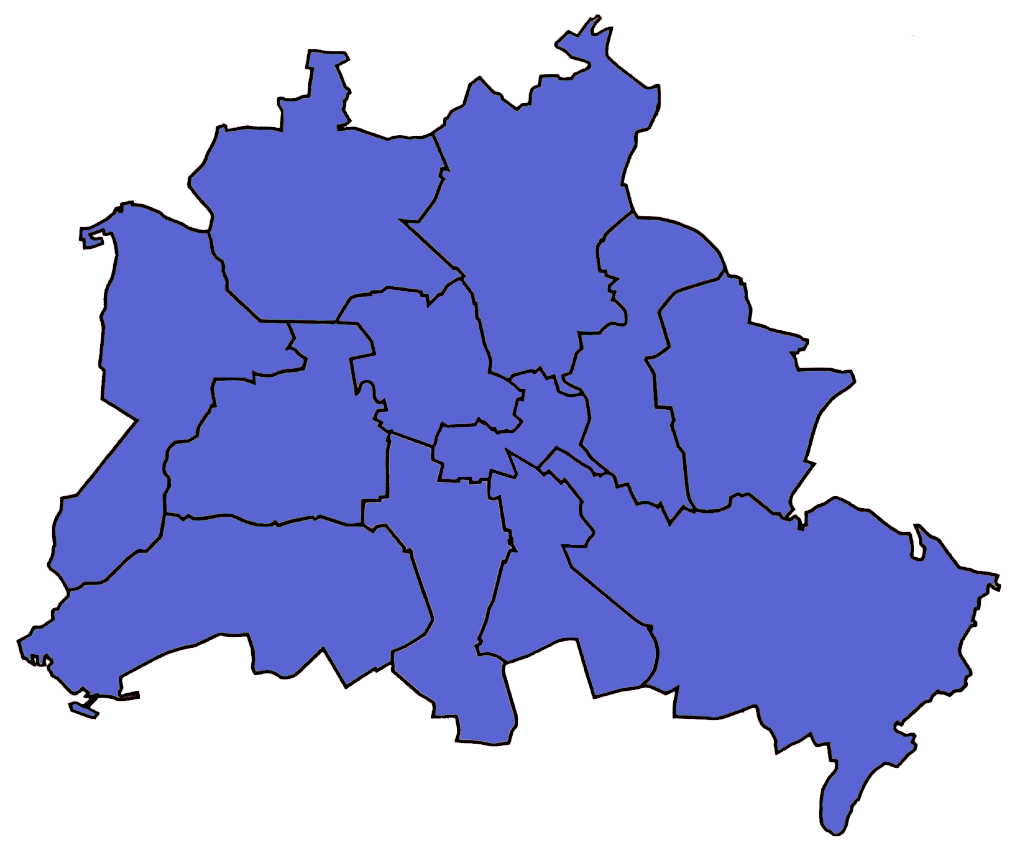colonialism, provided that these streets were named after pioneers and advocates of colonialism, slavery, and racist-imperialist ideologies or after places, things, events, organizations, symbols, terms or similar.
The legal basis of street renaming
The naming and renaming of streets is defined in Berlin Street Law (BerlStrG). Information on the selection of street names can be found in the implementation regulations of section §5. These regulations also specify when streets should be renamed, namely to eliminate street names with reference to:
More than 90% of the streets named after individuals are named after men. The implementing regulation states that women should be given greater consideration. However this does not apply “if there is a citywide interest or concerns regarding the capital in naming [places, streets etc.] after a male person”.
In addition to this law each district still has its own regulations. This means that in practice each district decides on street names individually.
Special regulations of the Berlin districts

The district council of Reinickendorf determinded to prioitize the names of women when changing street names until a total equality of men’s and women’s names has be reached. However streets have repeatedly not been named after women.
The district council of Pankow determinded to prioitize the names of women when changing street names until a total equality of men’s and women’s names has be reached. However streets have repeatedly not been named after women.
The district council of Spandau determinded to prioitize the names of women when changing street names until a total equality of men’s and women’s names has be reached.
In Charlottenburg-Wilmersdorf there has been an determination to name streets and squares after “women and individuals who stood in resistance to National Socialism, who have publicly demonstrated their civil courage against right-wing extremism, racism, and anti-Semitism in the recent past, or who have been victims of right-wing extremist or racist violence.” This determination has been in place since 2001.
The district council of Mitte of 2002 and 2004 determined to give preference to women’s names for new and renamed streets. The History Working Group formed by the BVV Committee for Education and Culture is responsible for selecting street names. To be included on the list of suggestions the person in question should be connected to the local area.
The district council of Friedrichshain-Kreuzberg of 2005 determinded to prioitize the names of women when changing street names until a total equality of men’s and women’s names has be reached.
The district council of Marzahn-Hellersdorf determinded to prioitize the names of women when changing street names until a total equality of men’s and women’s names has be reached.
The district council of Steglitz-Zehlendorf of 2011 determined to give preference to women’s names to be accepted for the list of nominees. Out of 40 people currently 11 women are on the list. (As of 2014)
The district council of Tempelhof-Schöneberg determined that streets, buildings, and other public facilities are preferably be named after women in the future.
The district council of Neukölln determined that women’s names should be preferred for new names and renaming until equality has been established. However this instruction is not obilgatory.
